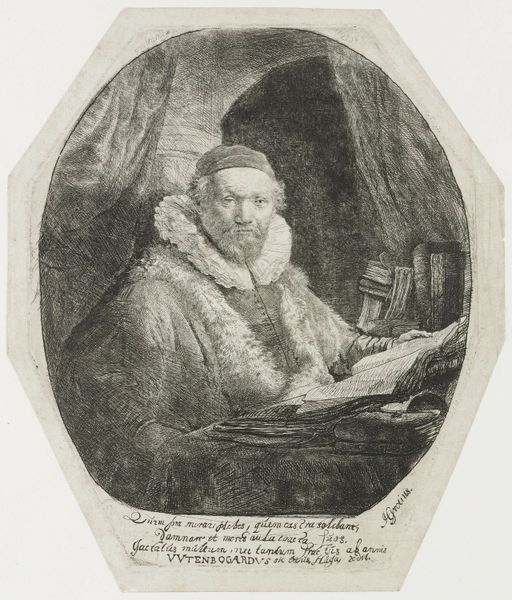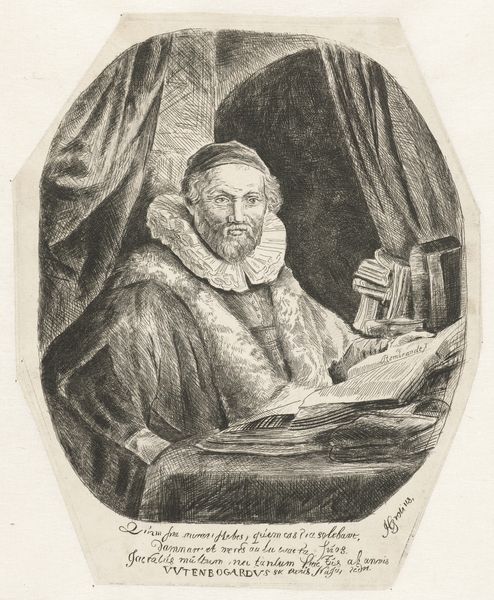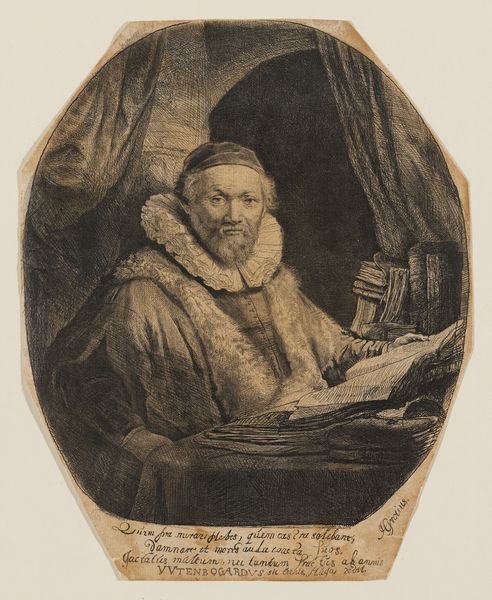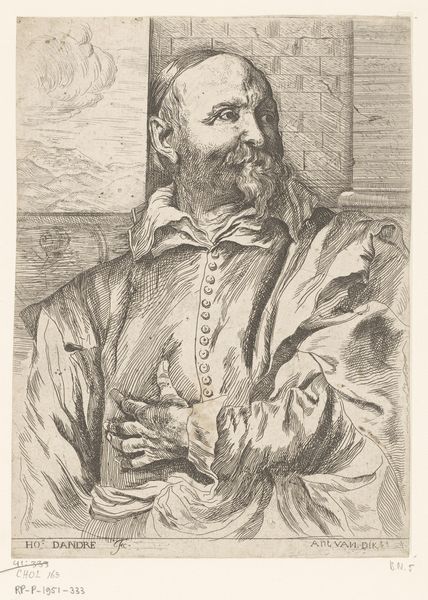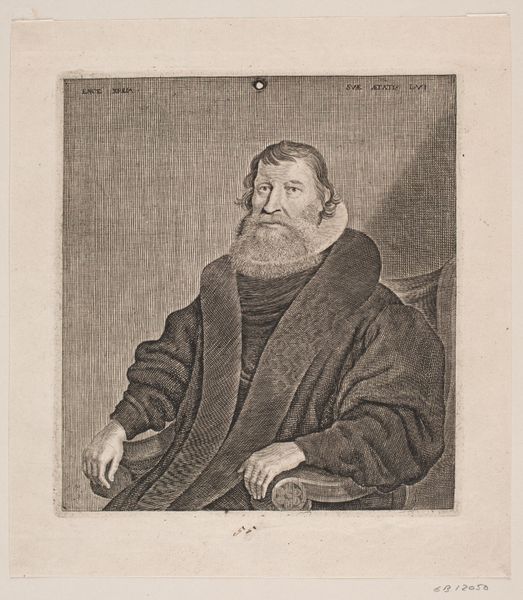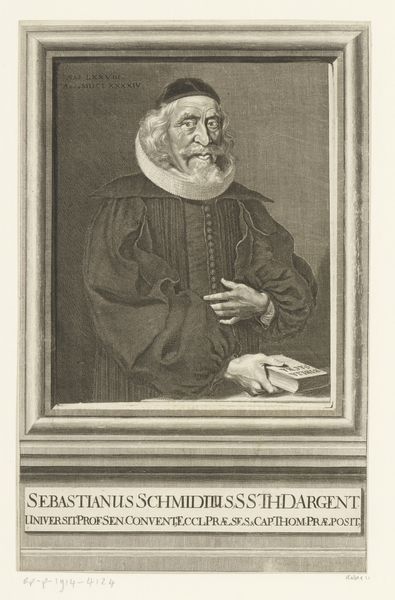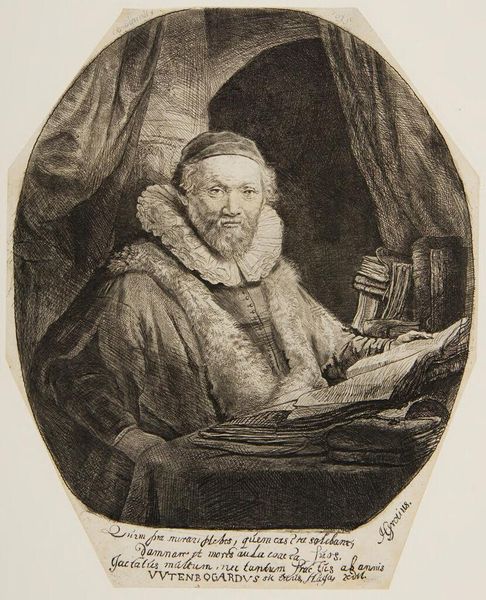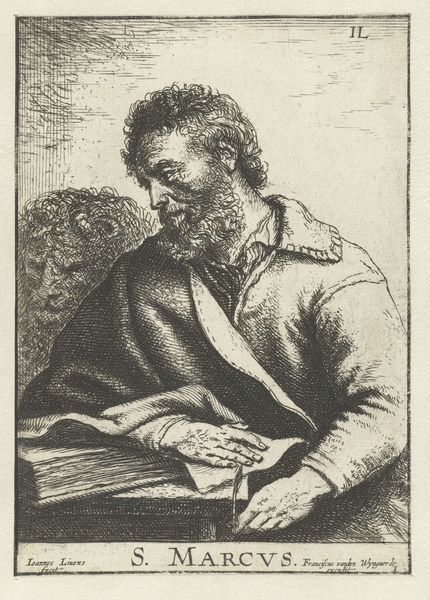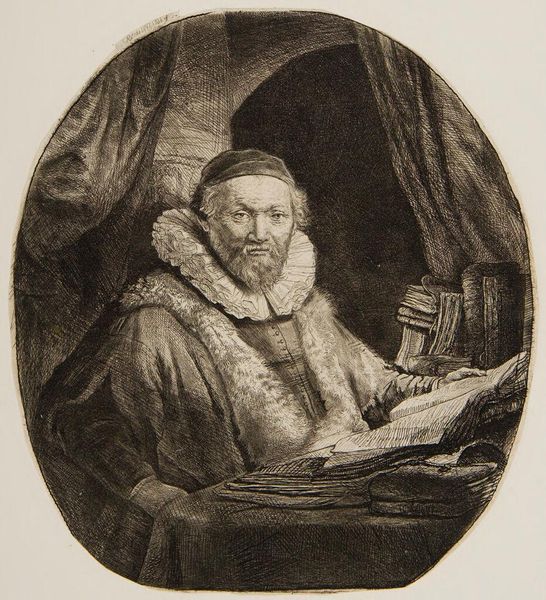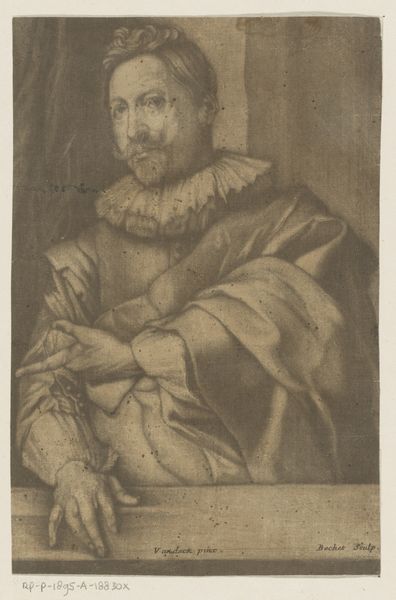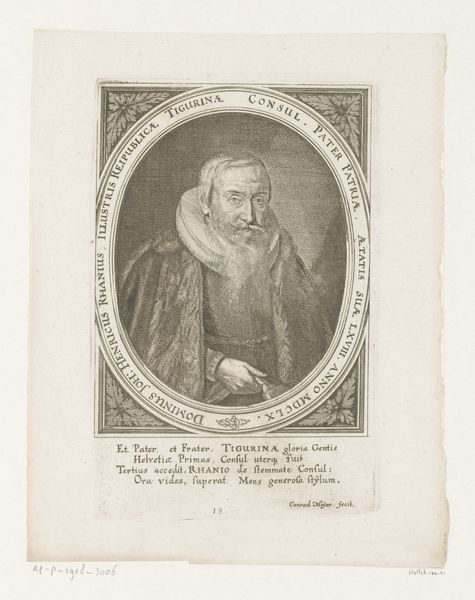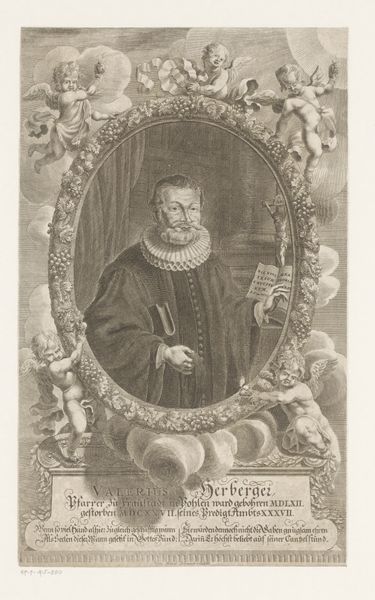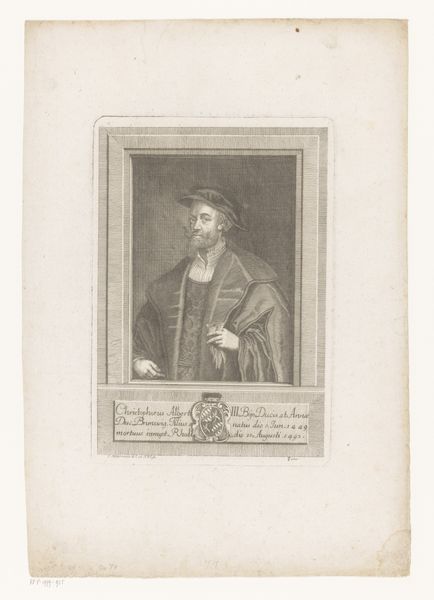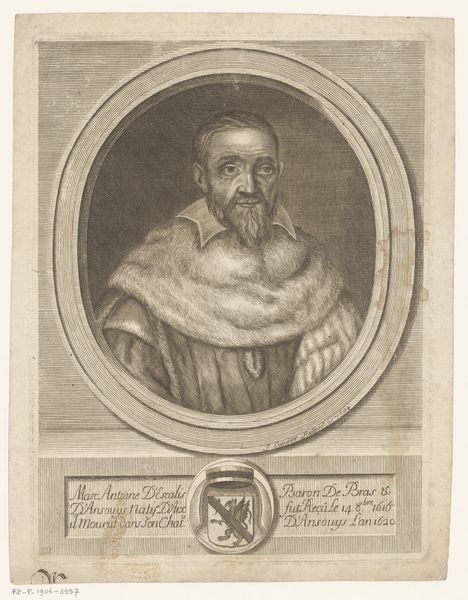
print, etching, intaglio
#
portrait
#
baroque
#
dutch-golden-age
# print
#
etching
#
intaglio
#
portrait drawing
#
realism
Dimensions: height 249 mm, width 185 mm
Copyright: Rijks Museum: Open Domain
Rembrandt van Rijn created this print of "Johannes Wtenbogaert" using etching techniques. The composition is structured within an oval frame, focusing our attention on the figure. The subject is rendered with careful attention to light and shadow, creating a deeply textured surface with dense, dark lines defining the contours of his fur-lined coat against the lighter backdrop. The way Rembrandt uses chiaroscuro, especially on the face, brings a sense of depth and gravitas to the portrait. The lines and textures might seem like simple aesthetics, but they also reflect the philosophical currents of Rembrandt’s time. The detailed etching can be interpreted as a way of capturing the intricate details of human experience, mirroring contemporary ideas about individual character and emotional depth. Consider how Rembrandt uses the etching technique not just for representation but as a means of exploring the nature of representation itself, inviting continued analysis.
Comments
rijksmuseum over 2 years ago
⋮
After Wtenbogaert returned from exile in 1629, Rembrandt made two portraits of him. The first is a painting from 1633, and the second, two years later, is this etching in which Wtenbogaert is portrayed as a scholar looking up from his work. The accompanying poem by Hugo de Groot (Grotius) refers to his return and underlines that the humiliations he suffered notwithstanding, he remained unbroken. Several states of the etching have been preserved.
Join the conversation
Join millions of artists and users on Artera today and experience the ultimate creative platform.
